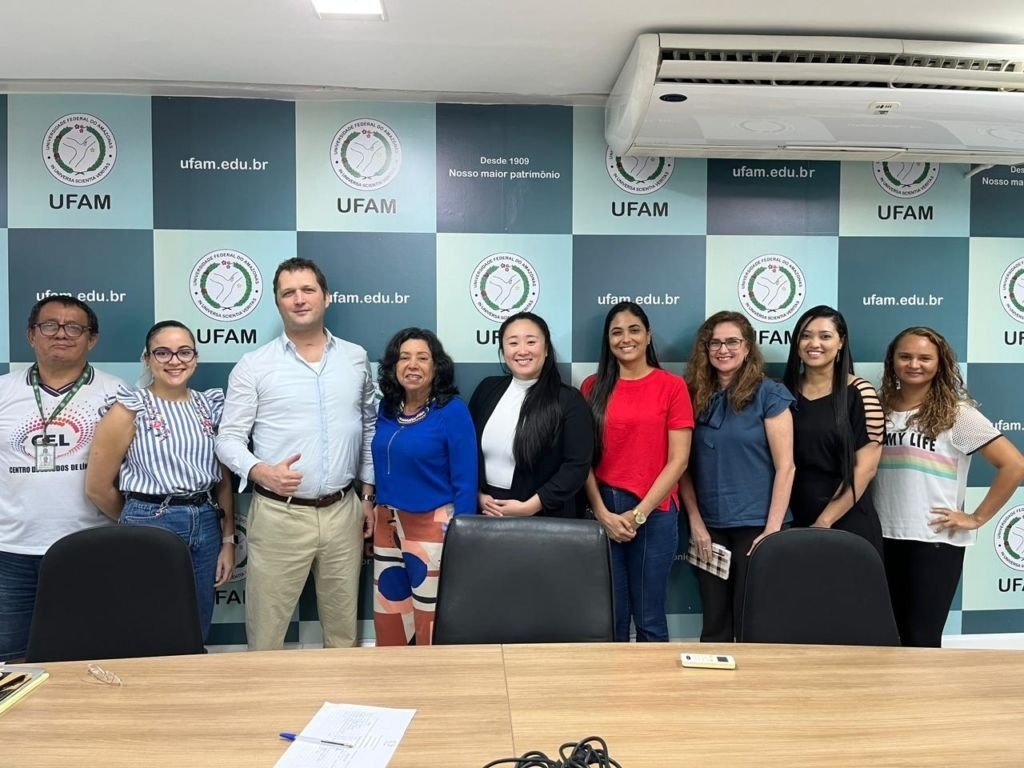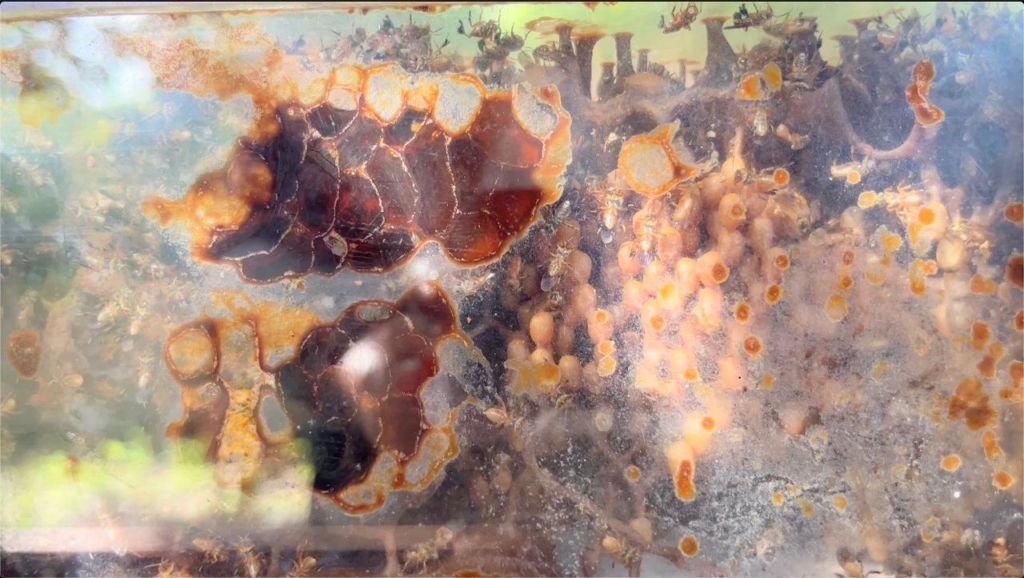English Translation of Original Article in Portuguese: https://d24am.com/amazonas/projeto-sustentavel-mostra-estudo-sobre-abelhas-sem-ferrao-na-regiao-amazonica/
Sustainable project shows study on stingless bees in the Amazon region
Providing knowledge combined with the preservation of the region's natural resources
Published on April 23, 2024 at 2:04 pm
By Ana Cecília Campos
Manaus – Representatives of the Global Portal Institute, Nicolas Picat Saridaki, President of the Institute, and innovation and technology specialist Lucy Xu, were in Manaus to participate in a meeting at the Federal University of Amazonas (UFAM) to discuss the study on the species of stingless bees, a bee native to this Amazon region.
The Institute creates bridges between isolated communities and the capitals of states on different continents, aiming to disseminate knowledge through native pollination and the handling of its byproducts, in a way that maintains the preservation of natural resources and economic development.
At UFAM, the International Encounter for Earth Day 2024 brought together representatives from four continents, namely: Professor Mark Randall, Associate Dean and Assistant Professor at Parsons School of Design Strategies in New York; Professor Erica Denison, Senior Teacher at Prem Tinsulanonda International School in Chiang Mai, Thailand; Professor Dr. Kai Wang, Associate Professor, Research Scientist at the Apicultural Research Institute, Chinese Academy of Agricultural Sciences in Beijing, China; Professor Dr. Jamal da Silva Chaar, Dean of Technological Innovation at UFAM in Manaus; and Avelino Rodrigues, the Director of Alliance Française in Manaus.
According to Nicolas Picat Saridaki, the meeting integrated various research and contributions from Educational Institutions to contribute to the theme of Ecology combined with Economy. On the D24Am portal, he explained more about the Institute's role in native pollination research.
“We started working on stingless bees in the eastern Amazon, with Suriname, French Guiana, Amapá and Pará. The model is very simple. We started installing these stingless bee nests in remote territories. We reach out to the community within the schools to explain that these bees don't sting. It is a very vast, broad and international environmental education project. Currently, there are over 30 countries involved in this project around pollination”, he said.
“We are in a political, economic and ecological transition, humanity is going through complex situations while solutions exist. Our countries, whether in South America, Europe or Asia, need financial input. Economic development often hinders ecological development. Remote communities that are not from the capital often face interests that are not theirs. Fortunately, we have a powerful tool that is native pollination. It's not just about the stingless bee, it's about pollination, honey, food security, oxygen, a common good. This creates gigantic economic opportunities. The problem is that there is a lack of interaction, a lack of exchanges for this common good”, he continued.
The Institute's function is to create bridges between private, purely financial and public entities, through the management of public property and space, by mapping the areas and creating delegations in each country for pollination, so that people who have the knowledge and credibility have opportunities. An interactive platform is also being programmed, enabling access to all who interested in the subject.
Nicolas Picat Saridaki reinforced the issue of the local wisdom of communities that must be considered in order for projects to have positive results. “The new generation that goes to study abroad, gets to know the world. But the problem is that when ties are cut, everything is lost, especially local wisdom. The new generation has the knowledge, but does not have the training and certification. Governments also need to be educated about this. It’s a gigantic wisdom that is being lost,” he said.
With the study on the stingless bee native to the Amazon region, the Global Portal Institute reinforces that it is not a fight between ecology and economy, but that they must go together and must be bridged to find solutions. For the Institute, the stingless bee is one of these bridges and Manaus has now become the world capital on this subject.
The Global Portal Institute intends to return to Manaus in 2025 for another global event for universities and institutions. Among one of its activities carried out in Santarém, Pará, the Institute carried out a pioneering action for the sustainable resocialization of people deprived of their liberty through training in the management of stingless bees within the prison center.
Tags: bees; actions; development; ecology; economy; sting; Institute; resources; Amazon region
< HOME



